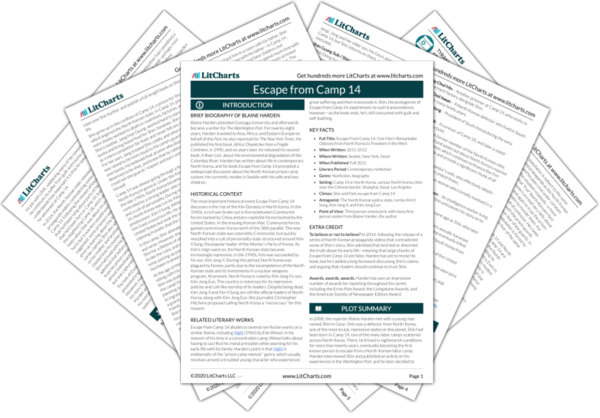Shin learned very little during his time in “school”—the most important lesson was to obey authority. Thus, when he received his assignment, he accepted it without question. Had Shin been assigned somewhere else, he could have died—again raising the possibility that Shin was only assigned to the pig farm (and, in the end, only escaped from camp) because he betrayed his family and received a reward. However, Shin later admitted that he distorted this part of his life’s story: he was transferred to a pig farm in Camp 18
after trying to escape from the camp.
